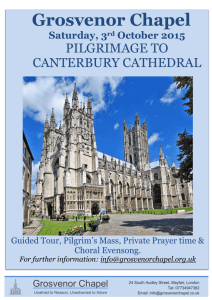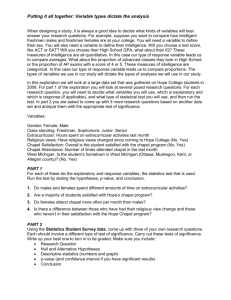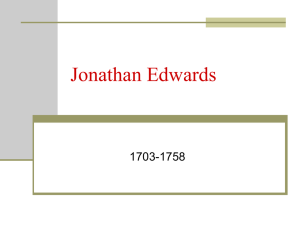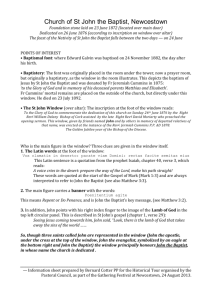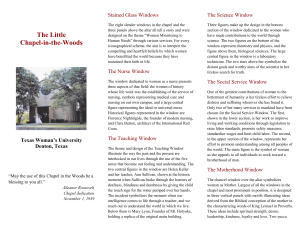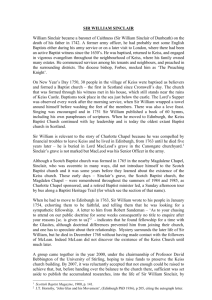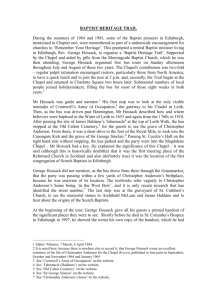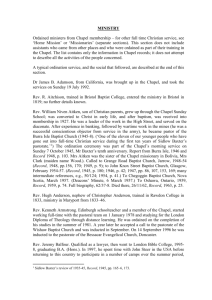The members of the MAA were indebted to our hostess, Carol
advertisement
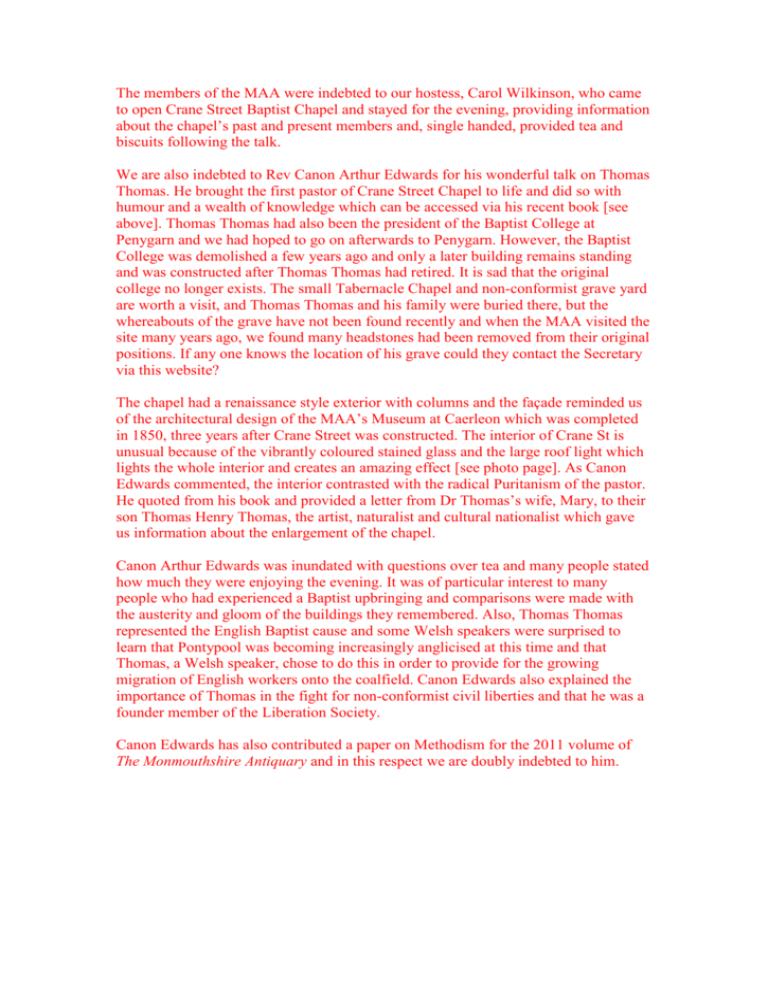
The members of the MAA were indebted to our hostess, Carol Wilkinson, who came to open Crane Street Baptist Chapel and stayed for the evening, providing information about the chapel’s past and present members and, single handed, provided tea and biscuits following the talk. We are also indebted to Rev Canon Arthur Edwards for his wonderful talk on Thomas Thomas. He brought the first pastor of Crane Street Chapel to life and did so with humour and a wealth of knowledge which can be accessed via his recent book [see above]. Thomas Thomas had also been the president of the Baptist College at Penygarn and we had hoped to go on afterwards to Penygarn. However, the Baptist College was demolished a few years ago and only a later building remains standing and was constructed after Thomas Thomas had retired. It is sad that the original college no longer exists. The small Tabernacle Chapel and non-conformist grave yard are worth a visit, and Thomas Thomas and his family were buried there, but the whereabouts of the grave have not been found recently and when the MAA visited the site many years ago, we found many headstones had been removed from their original positions. If any one knows the location of his grave could they contact the Secretary via this website? The chapel had a renaissance style exterior with columns and the façade reminded us of the architectural design of the MAA’s Museum at Caerleon which was completed in 1850, three years after Crane Street was constructed. The interior of Crane St is unusual because of the vibrantly coloured stained glass and the large roof light which lights the whole interior and creates an amazing effect [see photo page]. As Canon Edwards commented, the interior contrasted with the radical Puritanism of the pastor. He quoted from his book and provided a letter from Dr Thomas’s wife, Mary, to their son Thomas Henry Thomas, the artist, naturalist and cultural nationalist which gave us information about the enlargement of the chapel. Canon Arthur Edwards was inundated with questions over tea and many people stated how much they were enjoying the evening. It was of particular interest to many people who had experienced a Baptist upbringing and comparisons were made with the austerity and gloom of the buildings they remembered. Also, Thomas Thomas represented the English Baptist cause and some Welsh speakers were surprised to learn that Pontypool was becoming increasingly anglicised at this time and that Thomas, a Welsh speaker, chose to do this in order to provide for the growing migration of English workers onto the coalfield. Canon Edwards also explained the importance of Thomas in the fight for non-conformist civil liberties and that he was a founder member of the Liberation Society. Canon Edwards has also contributed a paper on Methodism for the 2011 volume of The Monmouthshire Antiquary and in this respect we are doubly indebted to him.

